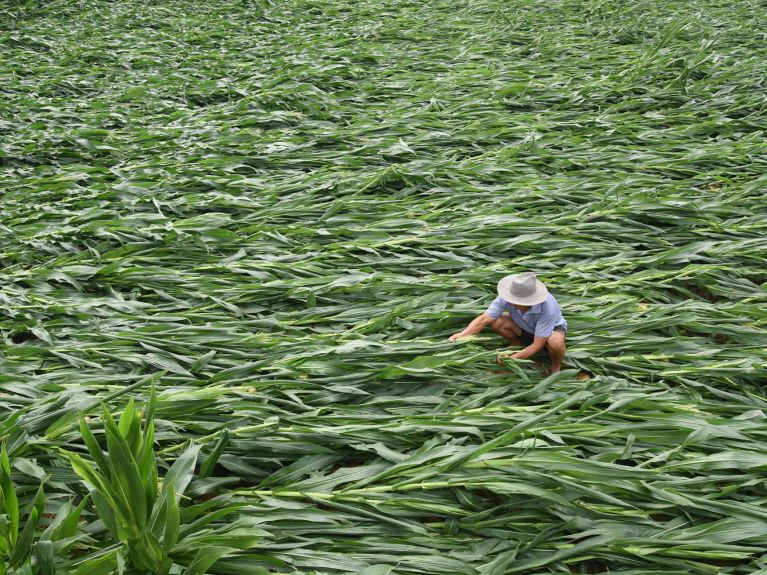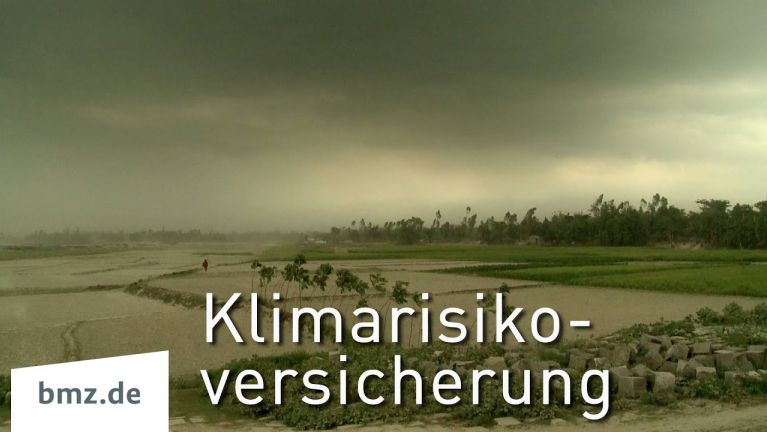Well insured
Across the world, farmers’ very existences are threatened by climate change. A climate risk insurance scheme protects them and their families.

Global warming spells more droughts, mudslides and flooding – with disastrous consequences. Poor countries are especially hard-hit, although they have contributed little to climate change. Climate risk insurance can help here.
Climate risk insurance – what is it?
Reinsurer Munich Re estimates that the damage caused by extreme weather events in emerging markets and the Global South between 1980 and 2016 totalled one trillion US dollars. Only three percent of the total was insured. This is where climate risk insurance kicks in. The idea is that rich countries provide money to guarantee insurance for those parties who cannot otherwise afford such protection.
Dieses YouTube-Video kann in einem neuen Tab abgespielt werden
YouTube öffnenThird party content
We use YouTube to embed content that may collect data about your activity. Please review the details and accept the service to see this content.
Open consent formHow did the idea come about?
From 2007 onwards, some countries in the Caribbean and Africa set up models to hedge against disasters. The first global initiative was rolled out in 2015 on Germany’s initiative. As part of its G7 presidency, Germany launched the InsuResilience initiative at the summit in Elmau, Bavaria. Two years later, when Germany chaired the G20, this was expanded into the InsuResilience Global Partnership. Alongside development finance institutes, insurance corporations are also involved. The goal is for a total of 500 million people in the world’s poorest countries to have access to climate insurance by 2025.
How does this actually work?
Organizations including the Deutsche Gesellschaft für Internationale Zusammenarbeit (GIZ) are responsible for implementing the system. “We are busy providing support for the establishment of climate risk insurance the world over,” comments GIZ’s Alexander Jäger. Together with partners, the organization has developed models for regions and countries in which there has to date otherwise been no suitable insurance coverage. Jäger mentions Peru as an example: “There, on behalf of the German Federal Ministry of the Environment and together with Munich Re, we devised an agriculture insurance scheme.” As a result, the number of insured farmers has almost doubled to more than 310,000.
You would like to receive regular information about Germany? Subscribe here:



